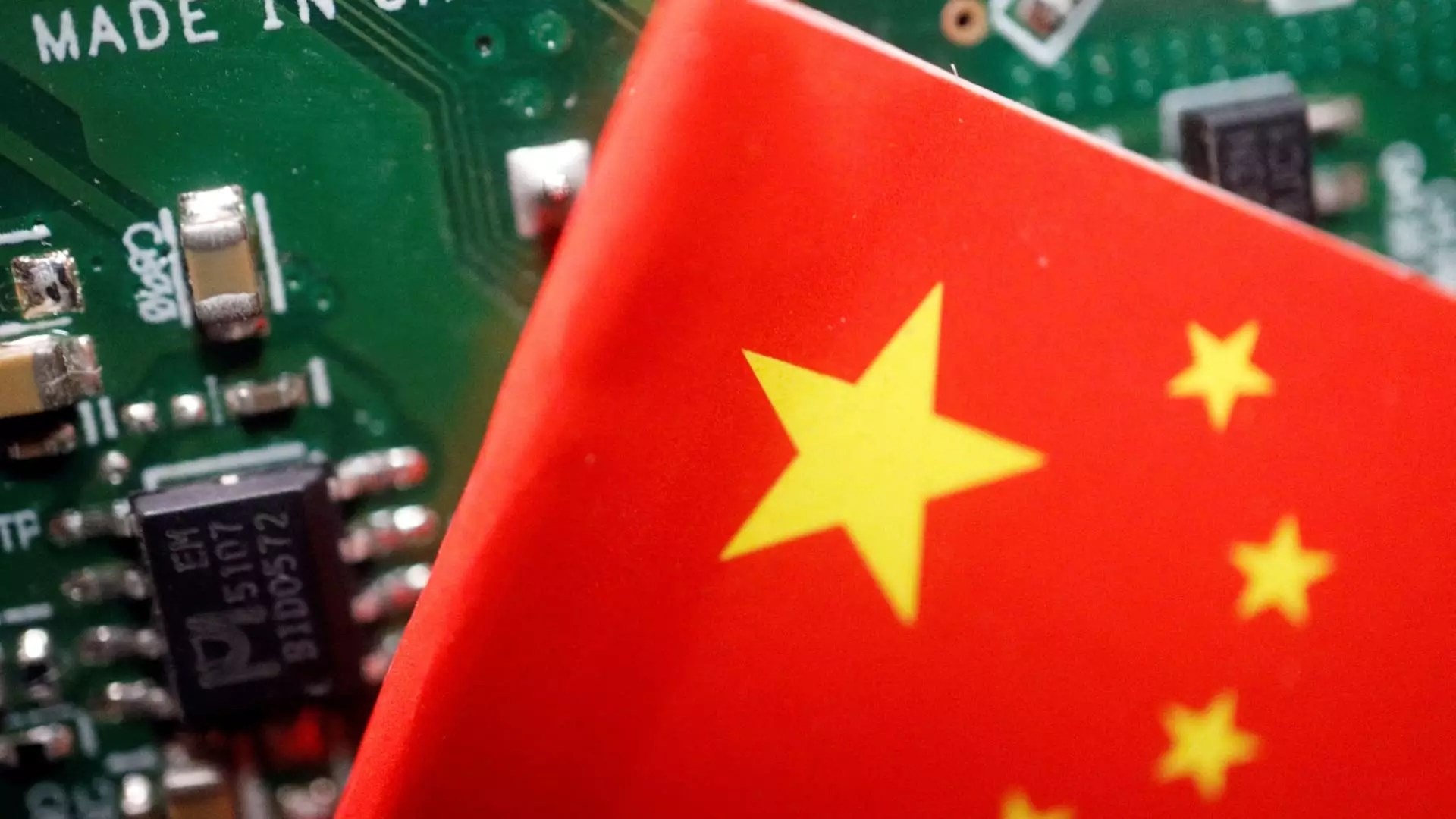The global semiconductor landscape has proven to be choppy, especially with the recent moves made by the U.S. government regarding semiconductor exports. Despite these challenges, Asian chip stocks, particularly those outside of China, demonstrated noteworthy resilience as markets reacted favorably to the situation. The growing complexity of global trade relations in the high-tech industry highlights a shift in both investor sentiment and market dynamics within the semiconductor sector.
A principal player in this narrative is the Taiwan Semiconductor Manufacturing Company (TSMC), renowned as the world’s largest contract chip supplier. On a day characterized by external pressures, TSMC’s shares surged by 2.42%. This uptick is a stark contrast to the broader implications of U.S. export curbs targeting high-end chips produced in China. It seems that TSMC has effectively mitigated the impact of these restrictions, reflecting robust demand for its products stemming from markets other than China. Investors appear confident in TSMC’s strategic positioning to weather geopolitical storms and supply chain disruptions, which can be indicative of its long-term growth potential.
The positive momentum extended beyond Taiwan, with several Japanese chip-related stocks showing substantial gains. Noteworthy increases included Tokyo Electron with a 4.7% rise, Lasertec at 6.7%, Advantest up by 3.9%, and Renesas Electronics increasing by 2.2%. The resilience displayed by these firms underlines the widespread belief in Japan’s technological prowess and their capacity to adapt to new market realities shaped by stringent regulations and trade tensions. Additionally, Softbank, which has significant investments in the British chip designer Arm, experienced a 3.6% boost in its shares. This growth trajectory reflects the broader confidence in the Asian semiconductor market’s ability to thrive despite adversity.
The implications of the U.S. restrictions on high-bandwidth memory chips are particularly noteworthy for South Korea’s industry giants, SK Hynix and Samsung. While both companies face challenges due to these new controls, their stocks demonstrated resilience, rising 0.9% and 1.8% respectively. Derrick Irwin, a portfolio manager at Allspring Global Investments, provided valuable insights, suggesting that while the restrictions would impact South Korean players, the potential effects might not be as significant as initially feared. Instead, he suggested that these companies might pivot towards markets in the U.S. and others where demand remains stable, showcasing their adaptability.
The U.S. government’s tightening of semiconductor export policies, which now affects 140 companies, underscores a strategic initiative to restrict China’s access to advanced chip technologies that could bolster its military capabilities. Notable among the new restrictions are measures aimed at 24 types of manufacturing equipment and three types of software tools crucial for semiconductor development. This indicates a growing recognition of the strategic importance of semiconductor production in global geopolitics.
Secretary of Commerce Gina Raimondo articulated the rationale behind these moves, framing them as a targeted tactic to safeguard U.S. national security interests. These developments signal a determined effort by Washington to fortify its technological edge and prevent potential adversaries from gaining access to critical resources.
Conversely, Chinese companies affected by these regulations suffered from market negativity, with notable declines in the shares of Naura Technology and ACM Research, which fell by 3% and 1% respectively. This broadening of U.S. restrictions manifests in a tightening grip on China’s ambitions in semiconductor self-sufficiency. However, the mixed results, including a slight increase for Piotech, suggest that there may be diversified market responses within China itself.
As the semiconductor industry continues to navigate a labyrinth of complexities exacerbated by geopolitical strife, the willingness of Asian chip stocks to rally amidst adversity showcases their underlying strength. Investors are cautiously optimistic, keeping a keen eye on how these dynamics unfold in both the markets and global trade regulations. Adaptability and innovation will likely become central themes as stakeholders attempt to chart a path forward in this ever-evolving sector, ensuring that manufacturers, investors, and governments remain agile in a landscape characterized by both rapid technological advancement and significant political tension.


Leave a Reply